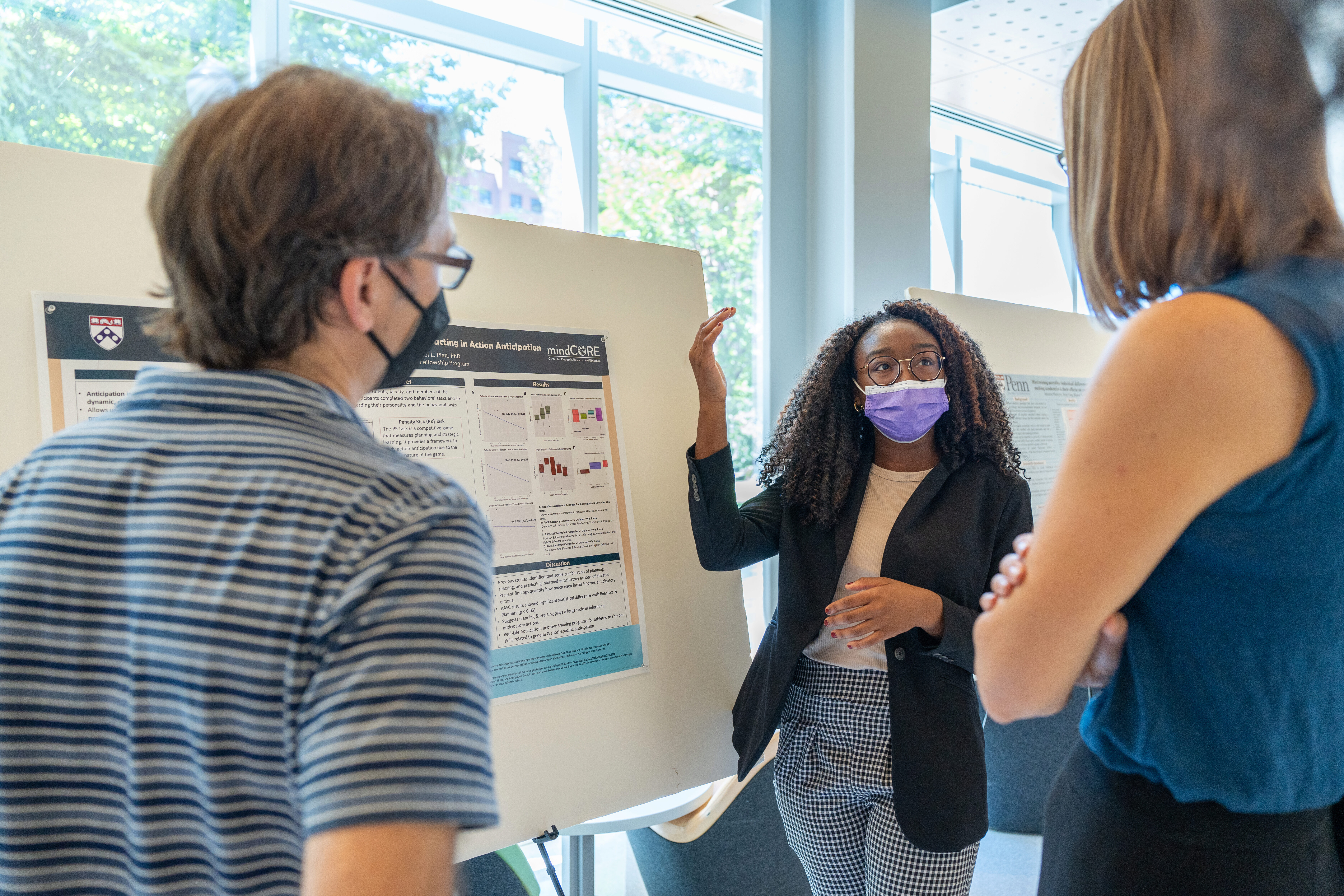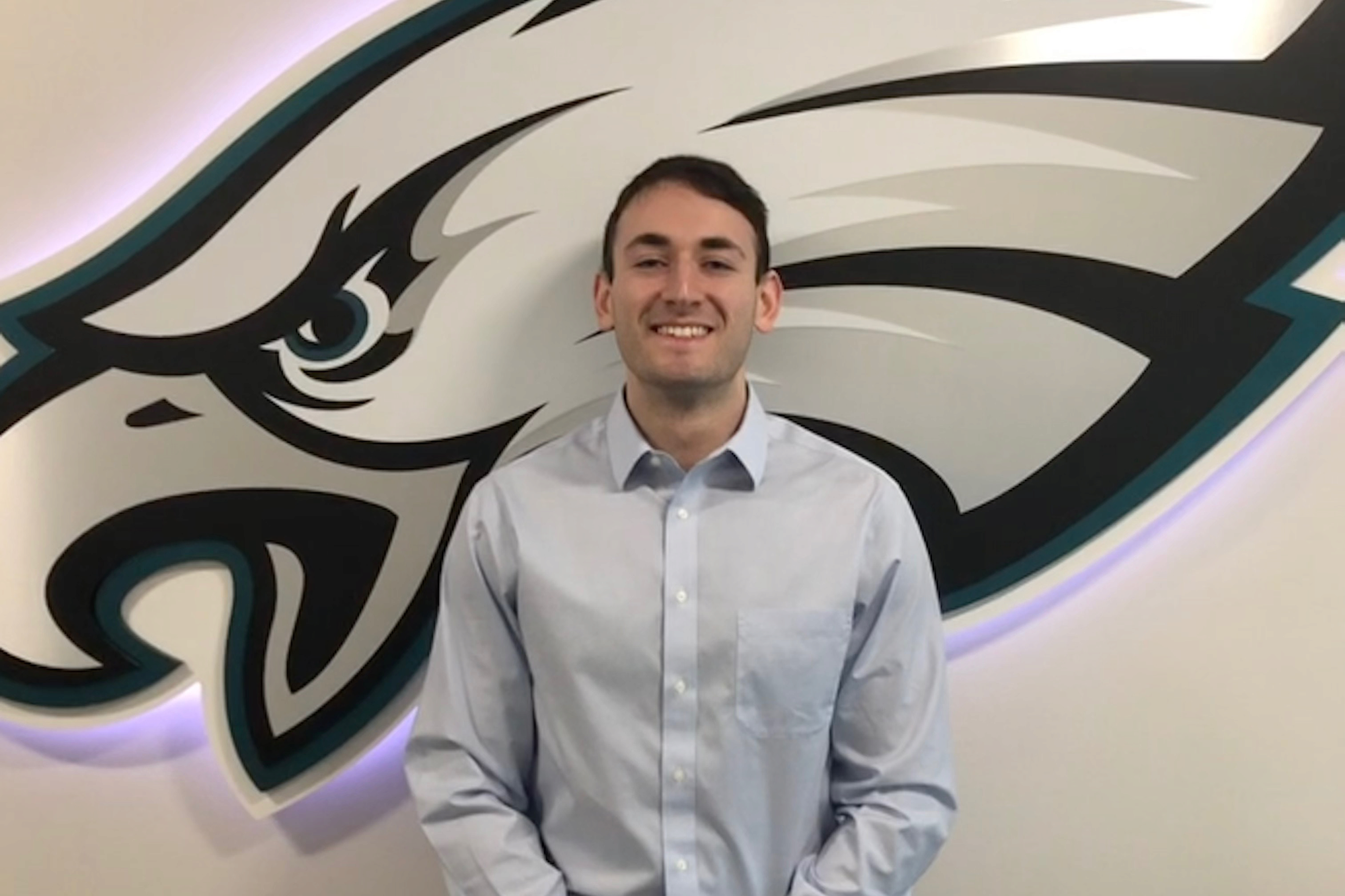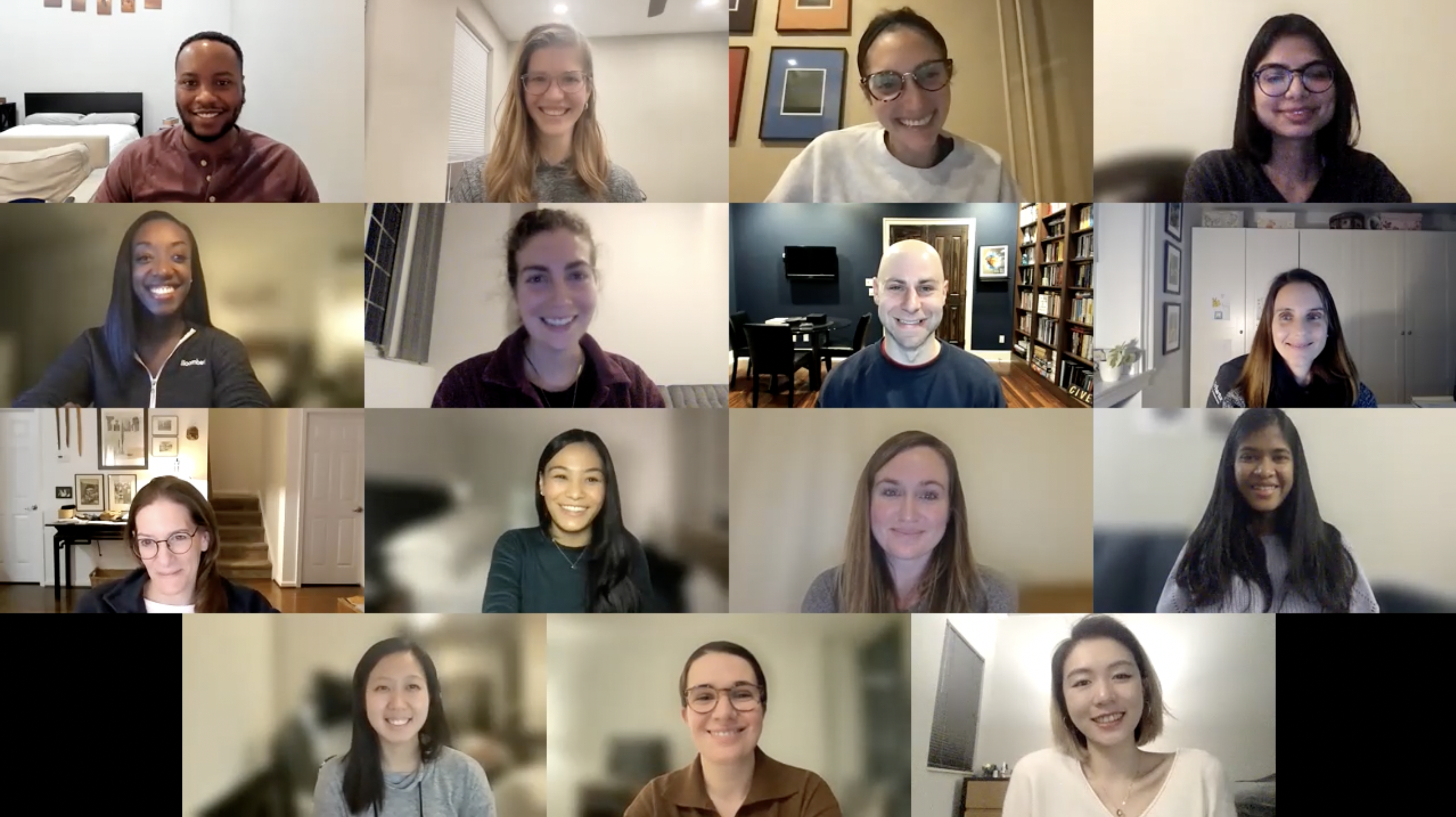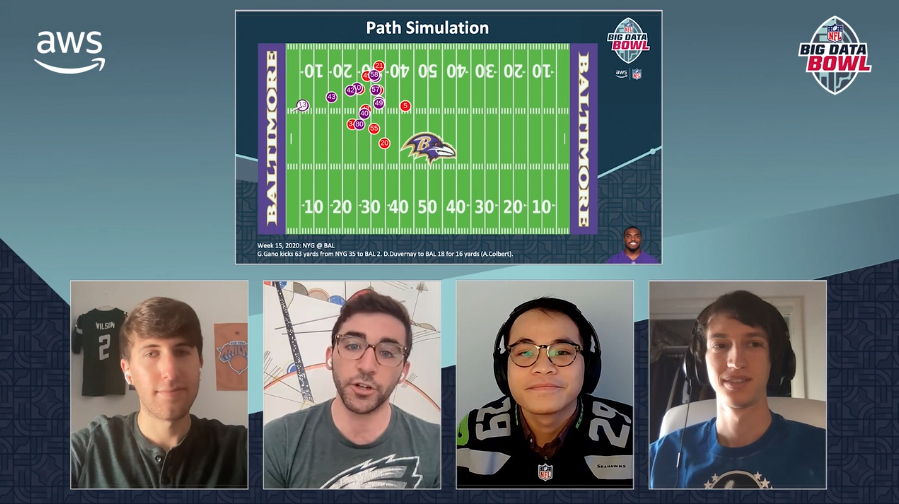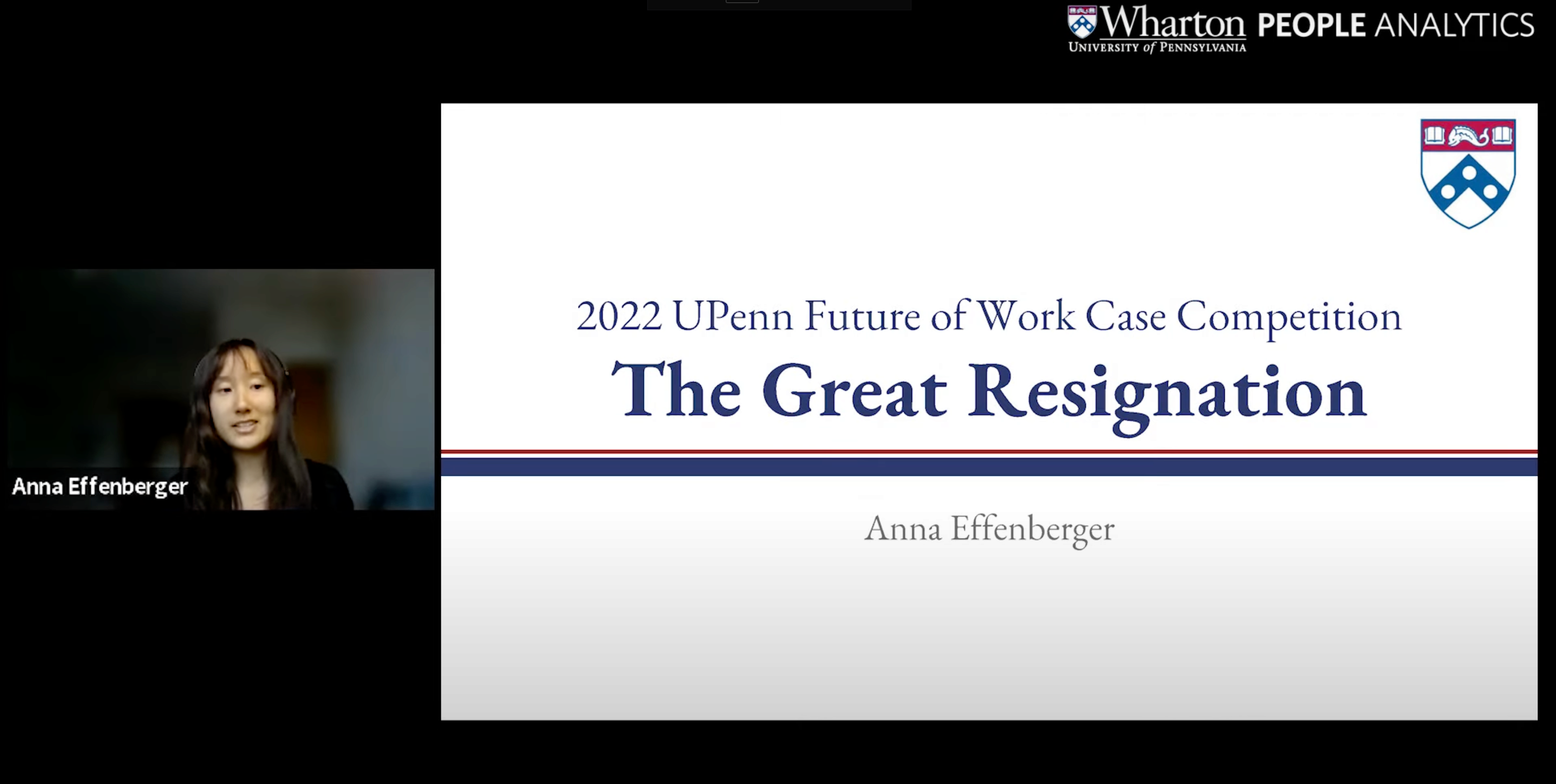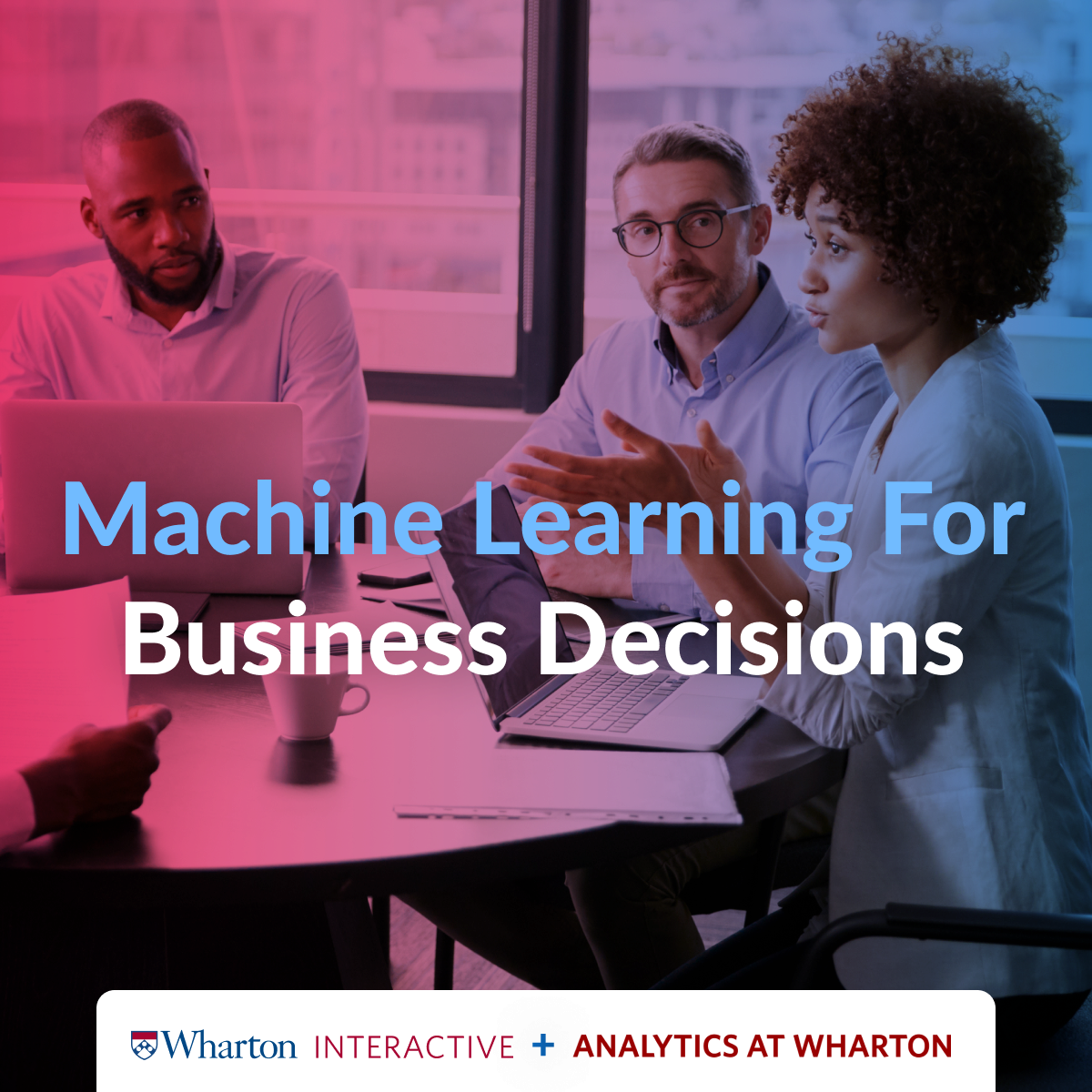
2022 Year in Review
As the calendar year comes to a close, we take a look back at all of the fantastic accomplishments that took place at Analytics at Wharton (AAW). From student programming, exciting in-person events, celebrity sightings, and a wealth of impactful funded research, 2022 proved to be a year of progress and innovation.
 At the Intersection of Industry and Academia
At the Intersection of Industry and Academia
 Women in Data Science @ Penn Conference
Women in Data Science @ Penn Conference
The Wharton School and Penn Engineering were proud to host the third annual Women in Data Science (WiDS) @ Penn Conference on February 9-10, 2022. Over the course of two days, attendees tuned in for talks showcasing the latest advances in data science, live speaker Q&A sessions, and networking opportunities. This year’s theme – This is What a Data Scientist Looks Like – emphasized the diversity of data science, both in subject matter and personnel. A celebrated interdisciplinary event open to everyone, WiDS @ Penn welcomed academic, industry, and student speakers from across the data science landscape. Read more >>
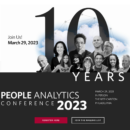 Future of Work Conference
Future of Work Conference
On April 7, 2022, Wharton People Analytics hosted the Wharton Future of Work Conference. The virtual event brought together a slate of speakers that included Microsoft Chairman and CEO Satya Nadella talking with Adam Grant, growth mindset pioneer Carol Dweck in conversation with Angela Duckworth, and organizational psychologist and founder of APS Intelligence John Amaechi. They discussed topics including burnout, hybrid work, and the 4-day work week, along with the great resignation, fair pay, and the surprising power of regrets. Watch the conference >>
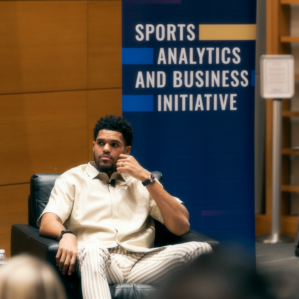 The Wharton Sports Business Summit Continues Its Winning Streak
The Wharton Sports Business Summit Continues Its Winning Streak
As part of the 2022 Wharton Sports Business Summit, students, journalists, and faculty alike gathered in the auditorium-style classrooms at the Wharton School’s Huntsman Hall to hear from prominent sports voices, including Philadelphia 76ers player Tobias Harris, Milwaukee Bucks co-owner, Marc Lasry, and a parade of esteemed alumni currently working in sports. Read more >>
Beyond Business
The Analytics of Finance
Wharton’s Beyond Business series continued this year with “The Analytics of Finance,” the first lecture in a three-part series in partnership with Analytics at Wharton. Hosted by Dean Erika James as part of the Tarnopol Dean’s Lecture Series, The Analytics of Finance tapped Michael Roberts, professor of finance, and Dan Taylor, director of the Wharton Forensic Analytics Lab, to explore how data is influencing critical decision-making in the field of finance.
Using Data to Protect and Servce
When faced with challenging societal issues such as police reform, human trafficking, and media transparency, analytics can offer surprising ways to increase accountability and drive social good. Hear from the Wharton School’s own Hamsa Bastani and Dean Knox, assistant professors of operations, information and decisions, and Duncan Watts, professor of operations, information and decisions, communication, and computer science.
More Than a Game
From determining player value and achieving optimal performance to mining insights for betting, the use of analytics in sports shows no signs of slowing. In the third and final Beyond Business session, hear from vice dean of Analytics at Wharton, Eric Bradlow, and Amy Howe, WG’99, CEO of FanDuel, about how the sports industry can embrace data science to create dynasties, and not just fleeting success.
 Impact Analytics
Impact Analytics
Penn Students Make Impact with Historic Philadelphia Non-Profit
Every fall and spring semester, Wharton hosts the Analytics Accelerator, an experiential learning program that pairs students with a company to solve a real-world business problem using the company’s actual datasets and the latest techniques in machine learning and AI. In the Spring of 2022, a team of Penn and Wharton students spent six weeks helping the newly merged Philadelphia Orchestra and Kimmel Center, Inc. identify opportunities to strengthen audience growth and attendance frequency by exploring their combined data. Read more >>
 The Next Generation of Analytics Leaders
The Next Generation of Analytics Leaders
AAW Student Spotlights
Renée Creppy
Renée Creppy is a junior at Xavier University of Louisiana, the only historically Black and Catholic university in the country, where she is earning a double major in neuroscience and French. Creppy was among 23 students who recently completed the MindCORE Summer Fellowship Program, a paid 10-week program at Penn that is open to outstanding undergrads. Read more >>
Zach Drapkin
Where most sports fans see raw talent, Zach Drapkin, W’22, sees raw data – the kind of data he likes to sift through to help athletes and teams optimize their approach to games. It’s this particular skill that has earned the Wharton graduate a job as a quantitative analyst with the Philadelphia Eagles. Read more >>
Brie Groh
Workplace culture has become a guidepost for Brie Groh, WG’22, which is why she was excited for the virtual Wharton Future of Work Conference on April 7, 2022. As the conference chairperson, Brie worked alongside Wharton People Analytics to invite great minds to share the latest information about evolving workplace culture and practices, including burnout, hybrid work, and the four-day workweek. Read more >>
Putting Skills to the Test
From Seahawks Fan to 2022 NFL Big Data Bowl Finalist
Tai Nguyen is a Penn graduate student, research assistant, former IBM data scientist, and a finalist in the NFL Big Data Bowl. Those aren’t bad stats for a bright student who came to America a decade ago by himself with big dreams. Read more >>
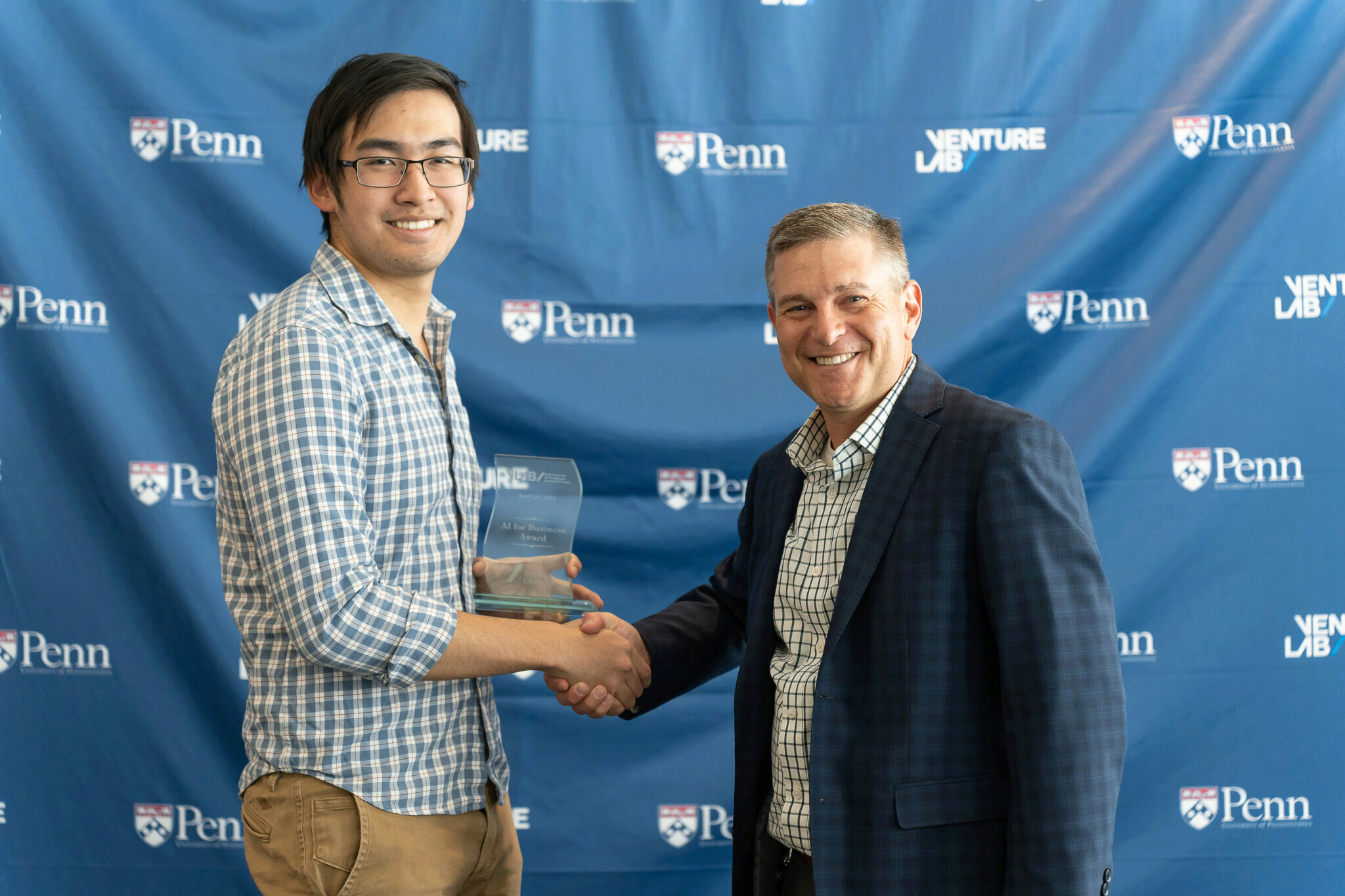
Wharton AI For Business Identifies and Funds Promising AI-related Startups
As part of the Venture Lab Startup Challenge, Wharton AI for Business helps to identify and fund promising AI-related startups. This year, a panel of six judges – ranging from esteemed AI faculty to industry experts – received pitches from a competitive field of student entrepreneurs at the University of Pennsylvania. Read more >>
Wharton People Analytics’ 9th Annual Case Competition
This year, Wharton People Analytics partnered with the University of Pennsylvania’s Division of Human Resources to explore the impact the great resignation/migration is making on its own community. 75 student teams from across the globe analyzed real data to help better understand the impact the pandemic and possibly other external factors were making on employment patterns at the university. Read more >>
Learning by Doing
Wharton Launches Its First Data Analytics Games-Based Course
In partnership with Analytics at Wharton, Wharton Interactive launched its first data analytics games-based course, Machine Learning for Business Decisions: Level 1. This immersive ARC, or alternate reality course, creates a fun, interactive experience where players learn how to leverage machine learning to guide business decisions. Requiring no prerequisites, the game takes the learner step-by-step through the fundamentals of optimizing and running XGBoost using real data from Evite. Read more >>
CSSLab’s Student Research Conference
The Summer 2022 Student Research Conference created a space where student members of the Computational Social Science Lab (CSSLab) presented on their summer project work, something learned (about themselves, about the research world, about social science or computer science, about a methodological approach) or something built (a technology, a piece of code, a mapping process, a technique, a lit review, an idea for further exploration). Covering six unique projects, the conference helped to connect and explain active research across the Lab. Learn more >>
Datathon
Hosted by Wharton Customer Analytics, the spring 2022 datathon experience was composed of teams made up of both Fulton Bank employees and Penn students alike. Teams were challenged with developing insights and recommendations for Fulton Bank using their data around selected business challenges in consumer and small business, Fulton financial advisors, information technology, marketing, and risk management.
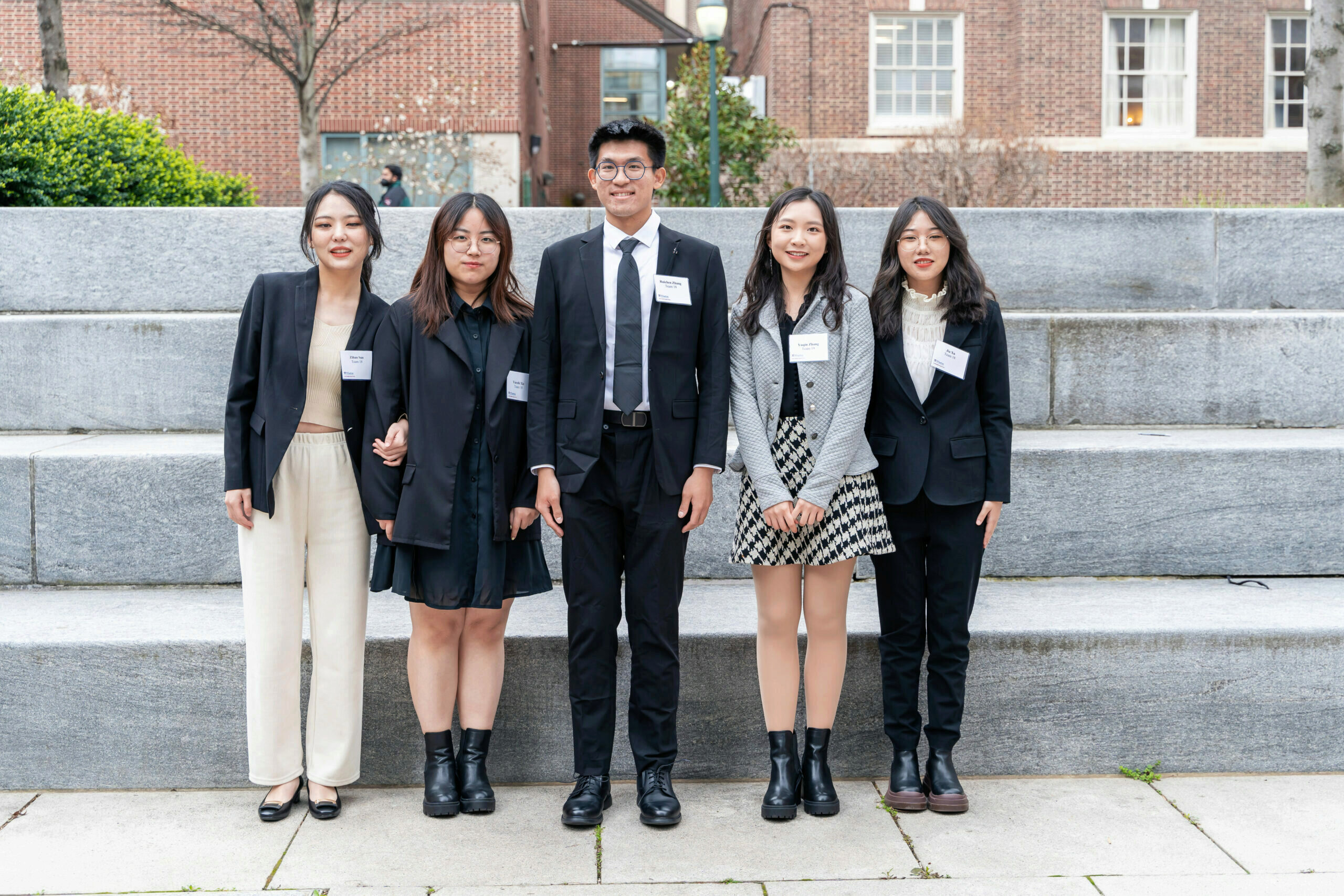
 Trailblazing Research
Trailblazing Research
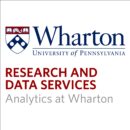 Wharton Research Data Services Featured in AMBA’s AMBITION Magazine
Wharton Research Data Services Featured in AMBA’s AMBITION Magazine
Wharton Research Data Services (WRDS) was featured in the Association of MBA’s magazine, Ambition. Speaking with Bob Zarazowski, managing director of WRDS, AMBA highlighted the work WRDS is doing to enable impactful, highly visible research. Read more >>
How to Hold Foreign Corporate Insiders Accountable
A research paper co-authored by Wharton’s Daniel Taylor formed the basis for a bill in Congress that aims to level the ground on insider trading disclosures. Professor Taylor spoke with Wharton Business Daily and Knowledge @ Wharton about his findings. Read more >>
 Susanna Berkouwer Reveals Sustainability Doesn’t Prevent Economic Prosperity
Susanna Berkouwer Reveals Sustainability Doesn’t Prevent Economic Prosperity
Analytics at Wharton provides funding to a wide variety of research initiatives. In this research spotlight, we profile Susanna Berkouwer, assistant professor of business economics and public policy, and their research in Data Analytics for Economic Efficiency in Energy Policy. Read more >>
AAW Funded Research
Spring 2022
Artificial Moral Agents
Amy Sepinwall, Associate Professor, Legal Studies and Business Ethics
This project seeks to gain clarity on whether AI can satisfy the requirements of moral agency and how this impacts corporations.
Building a Nudge Map: A Use Case of Research Cartography to Evolve Social Science
Duncan Watts, Stevens University Professor of Computer and Information Science, Communication, and Operations, Information and Decisions, Linnea Gandhi, Doctoral Candidate, Operations, Information and Decisions
This project seeks to build a map of “nudge” or “choice architecture” interventions, enabling practitioners and academics alike to navigate the theoretical space easily and effectively. The map will be seeded with historical studies and enriched with data from new lab and field experiments to help validate what we, as a field, do and don’t yet “know” about the efficacy of these interventions across contexts.
Data Analytics for Economic Efficiency in Energy Policy
Susanna Berkouwer, Assistant Professor of Business, Economics and Public Policy, Arthur van Benthem, Associate Professor of Business, Economics and Public Policy
This project builds a research portfolio that gathers large data sets from the U.S. and across the world and uses sophisticated econometric tools to analyze this data with the goal of quantifying the inefficiency and unintended consequences from inefficient regulations, and to propose improved energy policy.
Disclosure and Firm Strategy
Matthew Bloomfield, Assistant Professor of Accounting, Christina Zhu, Assistant Professor of Accounting
This project seeks to provide novel evidence regarding the link between firms’ public financial disclosures and their product market pricing decisions.
The Drivers of Immigrant Hiring
Saerom (Ronnie) Lee, Assistant Professor of Management, Exequiel (Zeke) Hernandez, Associate Professor of Management
Using multiple large-scale datasets on the U.S. labor market, this project will examine the firm-level drivers of hiring immigrant workers.
Exclusivity in the Video Streaming Market
Aviv Nevo, George A. Weiss and Lydia Bravo Weiss University Professor, Professor Marketing, Professor of Economics, Yihao Yuan, Ph.D Candidate, Marketing
This project seeks to understand the role that exclusive contracts play in shaping market structure, consumer demand, and innovation. This project will develop a structural model and use data-driven methods to quantify the impact of vertical contracts on consumer welfare and profits of studios and platforms in the video streaming market, a fast-growing market that already accounts for more than a quarter of all time spent on television sets by Americans.
The Trouble with Bots? Long Live the Bots!: The Development and Consequences of Workers Using Algorithms to Target Algorithmic Management
Lindsey Cameron, Assistant Professor of Management
This project is an inductive two-part multi-sourced qualitative study that focuses on the practices and community around the developers that write bots, scripts and automated programs that are designed to override algorithmic controls and how workers use these technologies to resist and counter algorithmic control.
Fall 2022
Biased Technological Change: Implications for Productivity Measurement
Ulrich Doraszelski, Joseph J. Aresty Professor, Professor of Business Economics and Public Policy, Economics, and Marketing, Jordi Jaumandreu, Senior Academic Researcher, Boston University
Artificial intelligence, machine learning, robots, and automation have fundamentally changed firms’ production processes over the years. Yet, the measurement of productivity traditionally assumes that these new technologies have scaled up existing production processes without substantially affecting how firms combine the various inputs to produce output. The proposed project develops methods for the measurement of productivity that account for these (and other) new technologies with the overarching goal of ensuring that their impact is fully reflected in the aggregate productivity statistics.
Biobank-Scale Imaging Genetics Mapping of the Manager's Brain
Bingxin Zhao, Assistant Professor of Statistics and Data Science
How does the brain of a manager differ from that of other people? Are manager’s brains born or made? In this project, a half-million large-scale biomedical datasets will be analyzed in combination with advanced statistical learning methods to uncover inter-subject variations in brain structure and function related to being a manager. Researchers will analyze the genetic endowment of manager-related brain differences by integrating imaging, genetics, and environmental information, and investigate their links to social activity, lifestyle, mental health, and physical health.
Government Customer Base: ESG Investments and Competitive Advantages
Winston Dou, Assistant Professor of Finance, David Reibstein, William Stewart Woodside Professor of Marketing
Environmental, Social, and Governance (ESG) issues are playing an increasingly important role in firms’ strategic decision making in financing, investment, marketing, and industry competition. This project aims to provide theoretical insights and empirical evidence on how corporate ESG activities could be motivated by firms’ considerations about product market competition and the potential feedback effect between ESG activities and competitive advantages in the product market.
Reliability and Pricing in Cloud Computing
Leon Musolff, Assistant Professor of Business, Economics, and Public Policy, James Brand, Senior Researcher, Microsoft, Juan Camilo Castillo, Assistant Professor of Economics, Will Wang, Chief Economist, Operate, Unity
Access to ample computing resources has become a key concern for leading firms across many industries. To investigate this concern, researchers empirically study the market design problem faced by cloud providers, which need to determine how to price and allocate fixed computing capacity across firms with differing needs and volatile demand. This investigation focuses on the prevailing “quality differentiation” strategy (in which spot VMs are sold at steep discounts) and its impact on market outcomes.
Roadmap to a Better Team: A Solution-Oriented Understanding of Team Processes
Duncan Watts, Stevens University Professor, Xinlan Emily Hu, Ph.D. candidate, Operations, Information and Decisions
Which aspects of a team’s interaction (the “team process”) predicts team success? And how might the answer change across different types of teams, tasks, and contexts? This project answers these questions by computationally modeling theories about team processes, then testing the theories head-to-head on a variety of real teams — from political deliberation groups to freelance software engineers. This model will uncover the boundary conditions of what makes an interaction successful, producing both precise social scientific theories for academics and data-backed insights for managers, executives, and team leaders.
The Impact of Immigration and Trade Policies on Start-Up Ecosystem
Britta Glennon, Assistant Professor of Management, Saerom (Ronnie) Lee, Assistant Professor of Management, Saerom (Ronnie) Lee, Assistant Professor of Management
How do entrepreneurs choose the location of their startups? Other dimensions of startup formation have long received extensive attention from scholars, but location choice—particularly, across national borders—remains under-explored. This project explores questions such as: are entrepreneurs more likely to establish their startups in other countries in response to more restrictive immigration or trade policies in the US? What types of individuals are most or least responsive? Who are the winners and losers?
Using Machine-Learning to Improve Medicare's Risk Adjustment Methodology
Ravi B. Parikh, Assistant Professor of Health Policy and Medicine, Ezekiel J. Emanuel, Vice Provost for Global Initiatives
The U.S. government pays Medicare Advantage (MA) insurers a set amount for each person who enrolls, with higher rates paid for patients assigned more co-morbidities via the current risk adjustment methodology. This incentivizes “upcoding”, systematic over-billing by MA insurers that results in at least $10 billion in excessive and unjustified costs each year. Leveraging applied machine learning methods, this “ML-Guided Risk Scoring” project aims to validate a more accurate risk score with wide adoption potential that can reduce gaming and upcoding. The outputs of this research approach will have relevance for policy adoption, leading to fairer payment to providers, incentives to care for medically vulnerable patients and parity between MA and traditional Medicare.
 In the News
In the News
Who Should Pursue a Master’s Degree in Data Science?
January 19, 2022
Eric Bradlow, Vice Dean of Analytics and professor of statistics and data science, marketing, economics, and education at the Wharton School, provides insight on who should get a master’s in data science, and why!
Moderna CEO Stephanie Bancel has Sold More than $400 Million of Company Stock during the Pandemic
March 17, 2022
Dan Taylor, director of the Wharton Forensic Analytics Lab and professor of accounting at the Wharton School, weighs in on a controversial financial story at the heart of the COVID-19 pandemic.
Your Loyalty Program Might be Losing You Money
April 4, 2022
Research from Raghu Iyengar, faculty director of Wharton Customer Analytics and professor of marketing at the Wharton School, attempts to quantify the value that customer loyalty programs actually provide for customers – and businesses.
Microsoft’s CEO Warns of the Impact of All Those Late-Night Emails
April 7, 2022
During Wharton People Analytics’ Future of Work Conference, Microsoft CEO Satya Nadella reveals the impacts that working from home and late-night correspondence can have on a work-life balance.
How AI and Humans Can Best Collaborate at Work
April 7, 2022
Kartik Hosanagar, professor of operations, information and decisions at the Wharton School, helps readers to develop a stronger understanding of how artificial intelligence can best team-up with humans in the workplace.
Welcome to Your Office in the Metaverse
May 24, 2022
“Working It” host Isabel Berwick talks to Lynn Wu, associate professor of operations, information and decisions at the Wharton School and an expert on emerging technologies related to the future of work.
TV News Top Driver of Political Echo Chambers in U.S.
July 26, 2022
Wharton’s Duncan Watts discovered 17% of Americans consume television news from partisan left- or right-leaning sources compared to just 4% online.
The Future of Job Interviews
August 8, 2022
Michael Platt, faculty director of Wharton Neuroscience and professor of marketing at the Wharton School, explains why the interview could soon be redundant in some industries.
To Make Better Hires, Learn What Predicts Success
August 22, 2022
Learn how Cade Massey, faculty co-director of the Wharton Sports Analytics and Business Initiative, turned to baseball to rethink recruiting.
Biden’s Student Loan Debt Forgiveness Plan could Cost up to $519 Billion, According to New Analysis
August 23, 2022
According to research from the Penn Wharton Budget Model, student loan forgiveness will be anything but “free.”
Lessons from Philadelphia’s Vaccine Lottery
September 29, 2022
Philadelphia implemented a cash lottery to encourage citizens to get vaccinated against COVID-19. Wharton’s Computational Social Science Lab helps us answer the question – did it work?
AI Predicts How CEO Personality Affects Company Performance
December 9, 2022
Analytics at Wharton’s Wharton Research Data Services (WRDS) provides datasets to help define CEO personality types, and determine how their behaviors can affect company performance.









